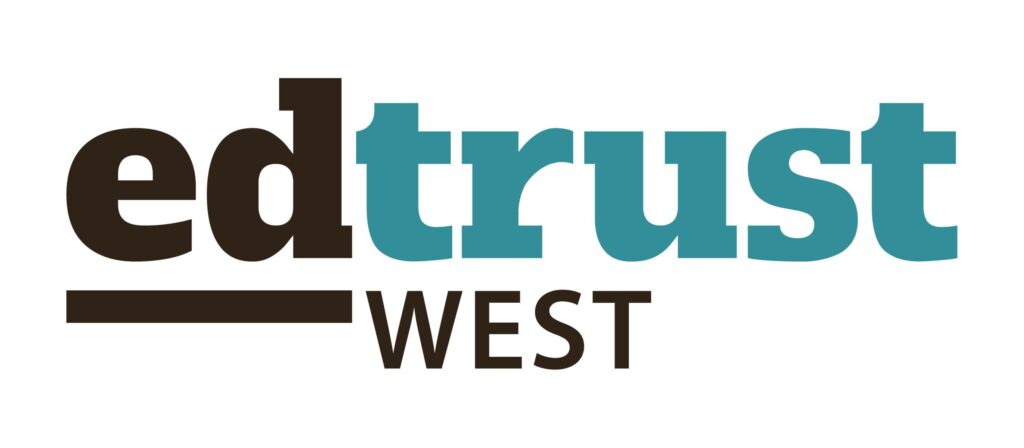The Alliance for a Better Community (ABC) and The Education Trust—West (ETW) — two organizations leading statewide education reform efforts — applaud key measures in recent legislation that increase California’s competitiveness for Race to the Top funds. Critical reform areas include provisions to: provide alternate credentialing paths; increase the quality of instruction in the areas of science, technology, engineering, and math; allow revisions to the Academic Performance Index (API) that add college and career readiness measures; and allow for the removal of the firewall that links student and teacher data to support instruction while allowing researchers to access state education data.
However, California must do everything it can to ensure it is competitive for Race to the Top funds, not just minimally qualified for them. Here, the legislation falls short – particularly in its lack of attention to improving low-performing neighborhood schools where low-income students and students of color are disproportionally concentrated. (Omitted first paragraph and re-inserted this from original letter)
Despite some progress, California legislation continues to fall short in its efforts to improve low-performing schools, where low-income students and students of color are disproportionately concentrated. According to the National Assessment for Education Progress (NAEP), California has some of the widest achievement gaps for Latino and African-American students — these students typically perform lower than their peers elsewhere in the nation. Consequently, these academic outcomes signal a need to significantly overhaul California’s teaching structures and learning practices. To this end, ABC and ETW propose that the legislature work to address the sources of inequities in low-performing, high-poverty schools and reform processes that these schools must engage in order to address their underachievement.
One area of inequity is teacher quality — the most important element of the Race to the Top application, and the most critical factor in determining student success. Although Governor Schwarzenegger’s recent budget proposals directly address teacher quality and stability in high-poverty schools, it is crucial that lawmakers follow suit and pass Race to the Top follow-up legislation ensuring that the neediest students have access to the most effective teachers and that school staff are protected from seniority-based layoffs during budgetary crises.
A second area requiring immediate attention is student access to high-quality, high-performing schools, and reform of the lowest-performing schools. Despite No Child Left Behind (NCLB) aggressive reform models requiring persistently low-performing schools to: rehire new staff; provide autonomy to a new principal; reopen as a charter school; and close the school altogether — most schools often choose a milder intervention such as professional development for existing staff, and changes to curriculum and instruction that hasn’t proven effective in raising student achievement in these schools. Recent legislation provides an open enrollment option that allows parents to send their children to neighboring districts, but it too ignores the fact that most parents want to send their children to quality neighborhood schools in their own communities.
The school reform options in California’s RTTT legislation simply will not produce the quality neighborhood schools long-awaited and deserved by so many communities — and following the steps of NCLB reform would only hasten our inability to compete for much-needed, crucial federal funding. (End this with a period).
There are examples of effective school transformation, namely the Pilot school model. Pilot schools are a network of small schools that operate under greater autonomy and accountability to achieve higher student results. In the two years since the first of five pilot schools opened in Los Angeles, the Belmont Pilot Schools have produced dramatic improvements in outcomes. In June 2009, Newsweek listed the Los Angeles High School for the Arts (LAHSA) pilot school as one of the nation’s top public schools. The rating was based on the school’s ability to graduate students prepared for college as determined by A-G (college preparatory course) completion rates and AP Exam participation rates and scores.(Add extra space here in simple send)
The window for creating more and better legislation to increase California’s Race to the Top competitiveness remains open. Race to the Top provides an amazing opportunity to change how California students experience education. The Education Trust—West and the Alliance for a Better Community urge everyone to take additional steps to promote school reforms that will meet the desire of every parent to have an excellent neighborhood school and the right of every student to have a quality education.

